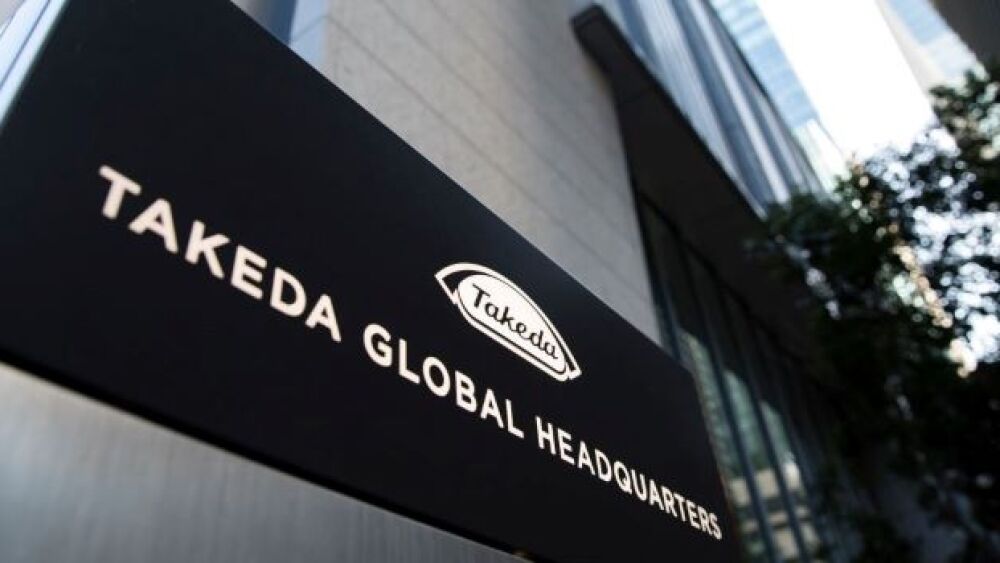Takeda has touted the potential of its Dengue vaccine for several years, and new long-term data reinforces the promise of the medication that could prevent the deadly mosquito-borne virus.
Tomohiro Ohsumi/Getty Images
Takeda has touted the potential of its Dengue vaccine for several years, and new long-term data reinforces the promise of the medication that could prevent the deadly mosquito-borne virus.
The company announced the first public presentation of the long-term safety and efficacy results from the ongoing pivotal Phase III Tetravalent Immunization against Dengue Efficacy Study (TIDES) trial of its dengue vaccine candidate TAK-003. The 36-month data, which has been included in regulatory filings, demonstrated the vaccine provided continued protection against dengue-caused hospitalization.
Takeda’s data showed the vaccine provided 83.6% protection of the need for hospitalization and 62% overall efficacy against the virus. The protection levels are regardless of an individual’s previous dengue exposure. The company presented the data from the long-term study over the weekend at the 17th Conference of the International Society of Travel Medicine.
TAK-003 was generally well tolerated, and there were no important safety risks observed. The results reinforce the potential of TAK-003 to help protect those living in or traveling to dengue-endemic countries.
Derek Wallace, Dengue Global Program Leader at Takeda, said the vaccine candidate continued to provide protection against the virus three years after dosing. The data showed TAK-003 was “especially robust in preventing hospitalization,” he said. With the strong results, Wallace said he is confident TAK-003 can address the “significant global burden of dengue.”
Dengue is the fastest-spreading mosquito-borne viral disease with an estimated 390 million cases and 500,000 hospitalizations per year globally, with limited options for prevention. The World Health Organization included Dengue as one of its ten threats to global health in 2019.
Approximately half of the world lives under the threat of dengue, which is estimated to cause 390 million infections and around 20,000 deaths globally each year, Takeda said.
TAK0-003, a tetravalent dengue vaccine candidate, is based on a live-attenuated dengue serotype 2 virus. In Phase I and II trials, children and adolescents given the vaccine exhibited an immune response on all four dengue serotypes.
In 2019, the company released Phase III data that showed the two-dose treatment hit its primary and secondary endpoints. Now, with the long-term data in hand, the company is eyeing the potential for regulatory approval.
Takeda will seek an indication for TAK-003 for the prevention of dengue disease in individuals four to 60 years of age, regardless of previous virus exposure, based on data in both adults and children.
The company is currently seeking approval for TAK-003 in the European Union and in countries where Dengue is endemic. Takeda intends to seek approval in the United States later this year.
Should it be approved, TAK-003 will challenge Sanofi’s Dengue vaccine, Dengvaxia, which has had a troubled history, particularly in the Philippines.
In 2017 it was reported that the Dengue vaccine could actually worsen the symptoms of the illness in people who had previously not been exposed to the virus. Sanofi said the analysis revealed that more cases of severe conditions could happen following treatment in patients who had not been previously infected by the dengue virus. The Philippines halted the use of Dengvaxia in that country.
“Dengue epidemics occur suddenly, and hospitals can become overwhelmed with severe disease cases and people seeking testing,” LakKumar Fernando, a physician at the Center for Clinical Management of Dengue and Dengue Hemorrhagic Fever in Sri Lanka and a primary investigator of the TIDES trial said in a statement. “Results from the long-term analysis of Takeda’s dengue vaccine candidate suggest that it could help with outbreak prevention, reduce rates of hospitalization and protect people from dengue regardless of their previous exposure. Importantly, no important safety risks were identified.”





